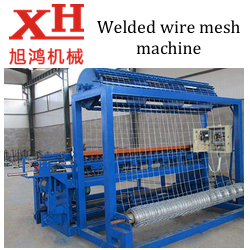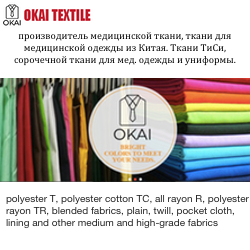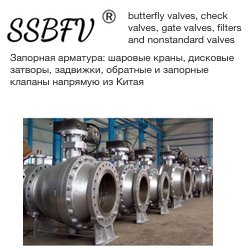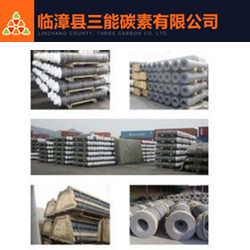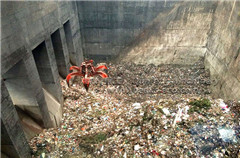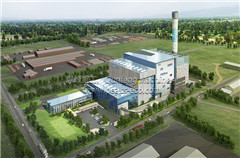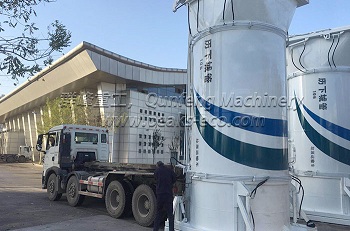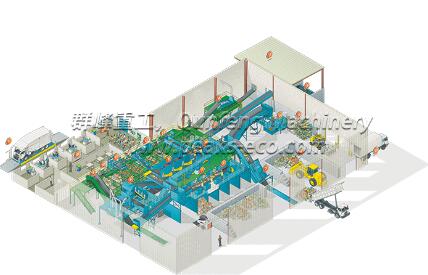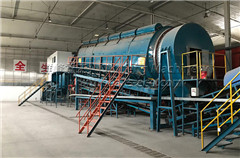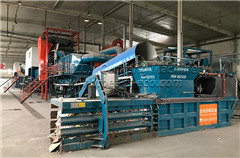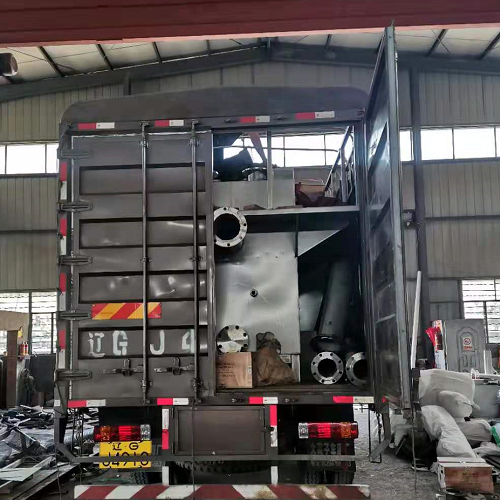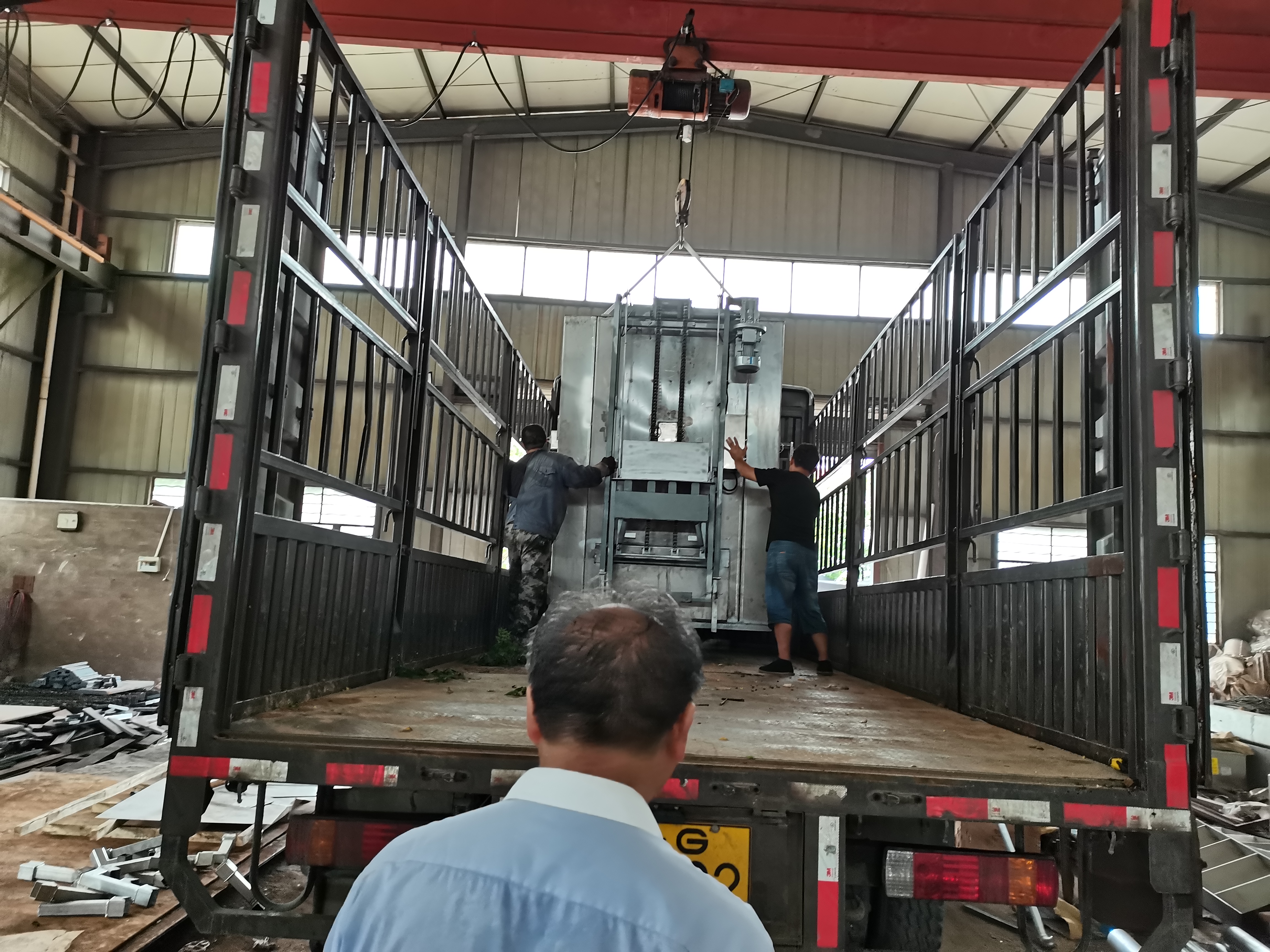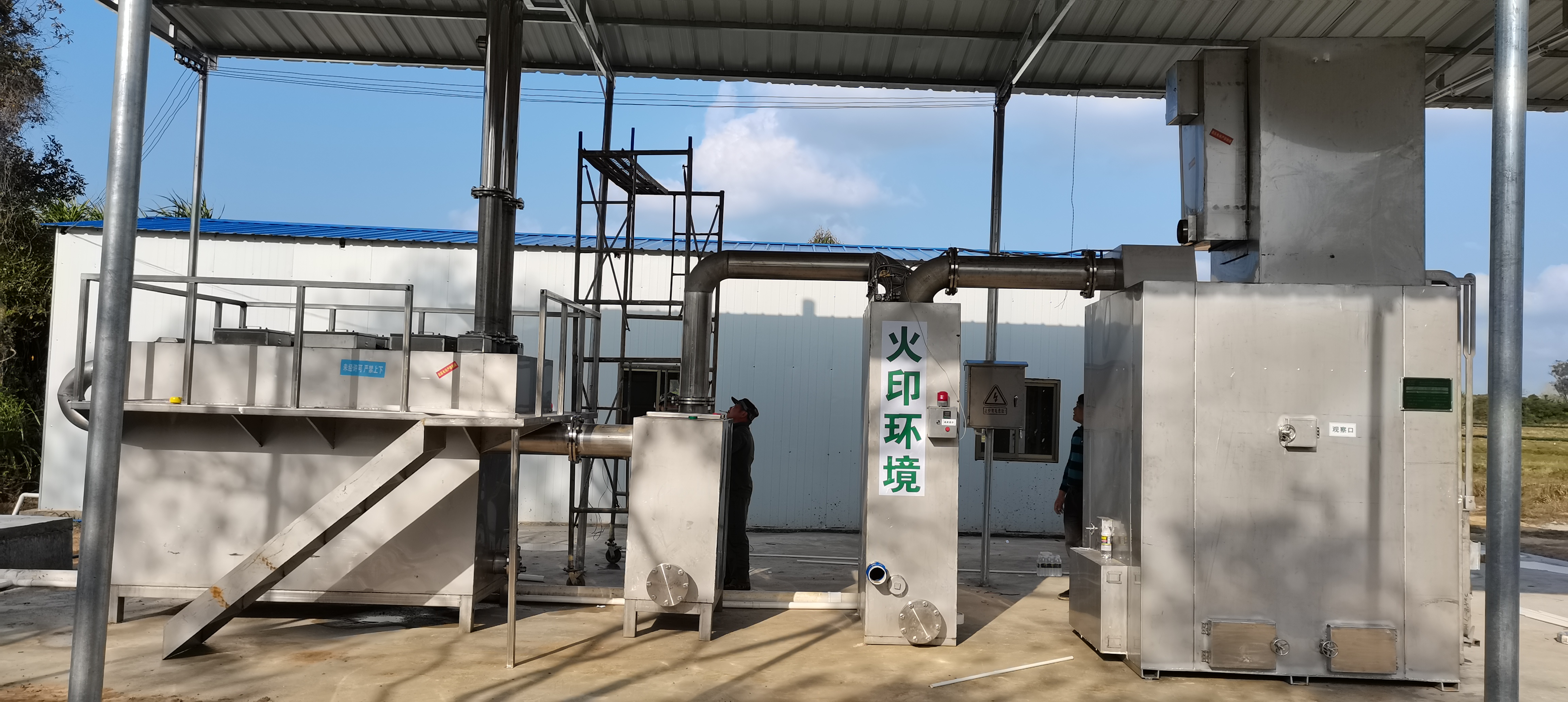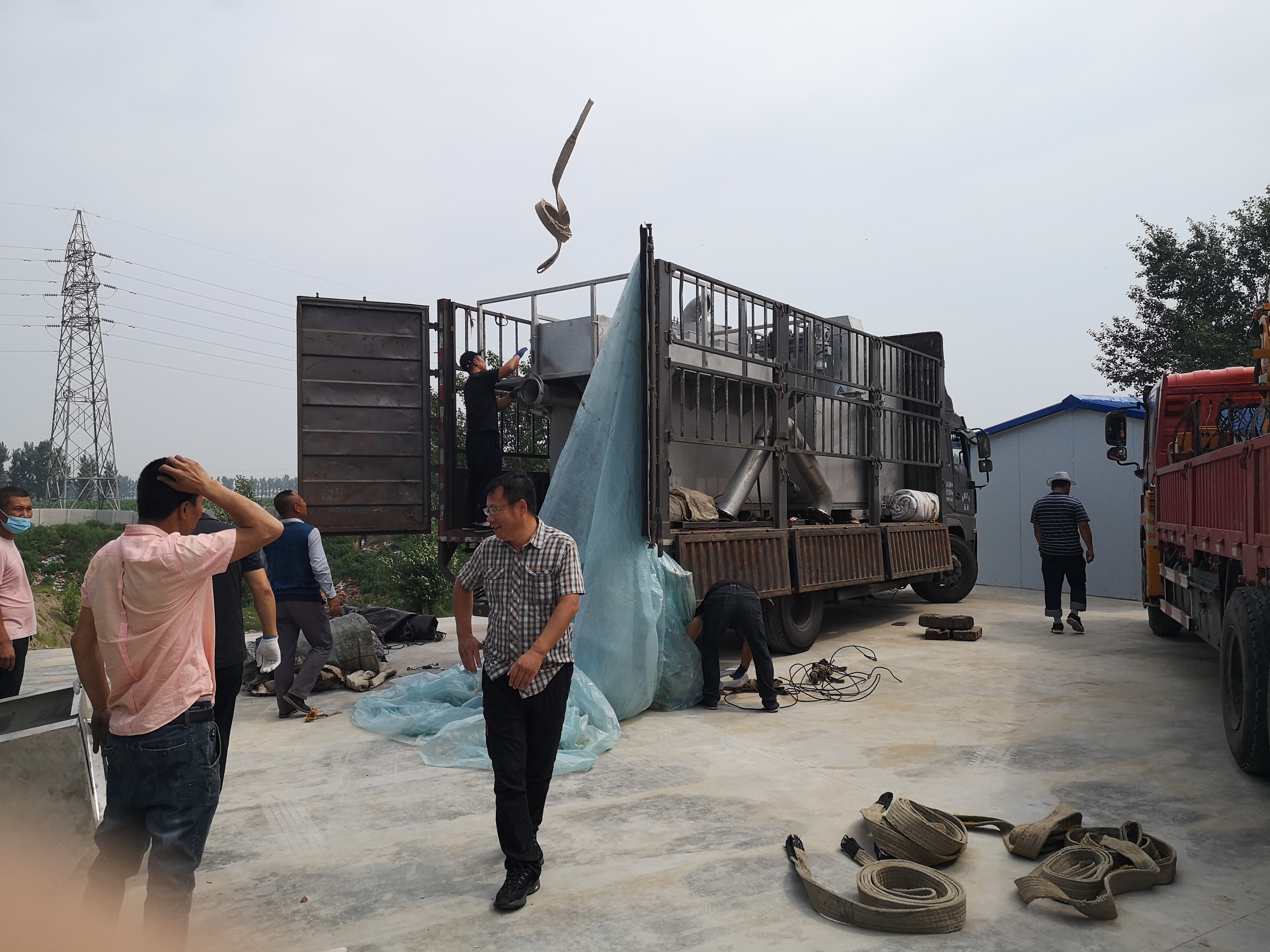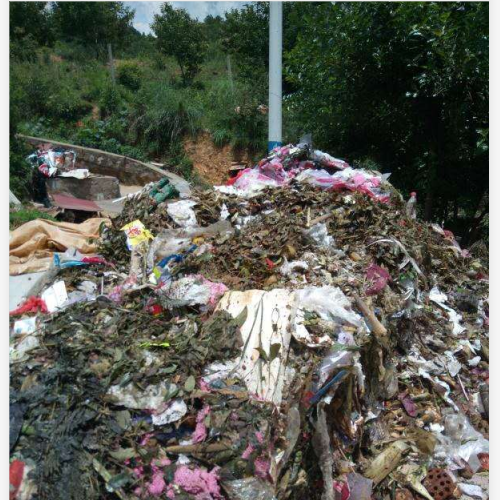waste sorting plant,waste to energy system,waste treatment system
waste sorting plant,waste to energy system,waste treatment system
This interactive graphic explains how the Waste to Energy plant works. It has been open since
2014 and operating at full capacity since day one. We also consistently operate within all pollution limits and report on the plant’s emissions on a monthly basis here.
Introdction of incineration plant:
The tipping Hall: In the tipping hall the waste is tipped into one of several tipping bays. Each bay has a hydraulically operated door designed to minimise noise and odour during tipping. Lights on each tipping bay indicate to the drivers of the vehicles which bay is available to receive waste.
The waste bunker: The tipping bays open into a waste bunker which is very deep. It can hold up to more than 10,000 tonnes of waste, enough to fuel the plant at full capacity for some days.
The incinerator:Overhead waste cranes mix the waste to ensure that it maintains a similar heating value. Thermal Cameras detect any hot spots in the waste bunker, if the temperature of any hot spot exceeds 90ºC water cannons automatically operate.
The combistion Chamber: The waste travels down the chutes and onto a horizontal feeder table where hydraulically operated ram feeders push the waste onto the stoker grate.The stoker grate is made up of alternate rows of fixed and moving cast steel bars that are arranged on a slope. The forward movement of these bars tumbles the waste slowly down the burning waste bed.Primary heated combustion air is drawn from above the waste bunker and fed into the waste bed through holes in each stoker grate bar. This process dries the waste and provides the correct amount of air to allow good combustion of the waste.
Secondary swirling air is introduced above the stoker grate. This ensures that the gases given off by the burning waste are thoroughly mixed, resulting in a fully optimised combustion process and lower levels of toxicity in the gases leaving the combustion chamber. Ammonia is also injected into the flue gas to reduce the level of Nitrogen Oxides to the level demanded by the Environmental Permit.
Electricity generation: Heat from the flue gases boils the water in the boiler tubes turning the water into steam in the Steam Drum, the steam is then super heated. This steam drives the turbine that in turn drives the generator, producing electricity.
The ash bunker: The resulting burnt out product is known as incinerator bottom ash and this falls from the base of the grate into a quench bath. Ash is collected in an Ash Bunker and loaded onto trucks by cranes and hoppers. Any oversized metal or other objects are removed and recycled and the remainder is sent to our partner plant at Tilbury Docks for processing and recycling into aggregate that is primarily used by the road building industry.
Managing the flue gases: Flue gases leave the boiler and pass into a reactor tower where hydrated lime, powdered activated carbon and water are injected into the swirling gas flow. These help neutralise acids and capture heavy metal particles.
Filtering the flue gases: Gases from the reactor tower are drawn into one of three fabric bag filters. These filters are each made from 2,048 6m long cylindrical fibre bags on steel wire cages. The clean gases pass through the filters and the Air Pollution Control Residue (APCR) collects on the outer surface of the bags.Compressed air pulses shake off the APCR into silos. The APCR is removed from the site by road tanker where it is recycled into cinder blocks for use by the construction trade.
Flue gas flow: Flue Gas is drawn through the entire process by Induced Draft Fans. The clean hot gas from the Fabric Filter is passed through a silencer and a heat exchanger that heats feed water to provide an efficient process.
The cooling stack: Cooled gas is forced up an 85 metre high stack where it is discharged into atmosphere. Emissions equipment continually monitors these emissions ensuring that our energy from waste plant stays within the limits set down in our environmental permit.
If you want to know more product information, you can click here.
在线联系供应商
Other supplier products
| Vertical Waste transfer Station System | Vertical Waste transfer Station System The system has adopted the most advanced vertical compression technology. The theory of the process, in sim... | |
| Single Stream Waste | Single Stream Waste While most EU countries and USA still have a policy that favors source separation, Single Stream waste processing is increasin... | |
| paper baler machine,plastic baler machine,auto tie baler machine | paper baler machine,plastic baler machine,auto tie baler machine,herizontal baler machine,waste treatment system Dezhou Qunfeng Machinery Manufactu... | |
| Waste To Energy (RDF&SRF),waste sorting machine,waste sorting plant,waste sorting machine | Waste To Energy(RDF&SRF),waste sorting machine,waste sorting plant,waste sorting machine PEAKS ECO customers are able to produce high-value Ref... | |
| Intelligent Solar Energy Underground Trash Bin | Intelligent Solar Energy Underground Trash Bin SMALL AND MEDIUM SIZE WASTE TRANSFER STATION SYSTEM WASTE TRANSFER STATION SYSTEM ... |
Same products
| 磁气生活垃圾热解炉 | 卖方: 杭州火印科技有限公司 | Fireprint生活垃圾焚烧装置。 磁气生活垃圾热解炉。 减量过程不需要燃料。 炭化环境不需要电力。 我们将富含氧气的气体从空气中分离出来 并帮助将生活垃圾低温下分解。 家庭垃圾焚烧炉 ,不产... | |
| 印尼生活垃圾焚烧炉 | 卖方: 杭州火印科技有限公司 | Fireprint生活垃圾焚烧装置。 印度尼西亚垃圾焚烧炉。 减量过程不需要燃料。 炭化环境不需要电力。 我们将富含氧气的气体从空气中分离出来 并帮助将生活垃圾低温下分解。 家庭垃圾焚烧炉 无黑... | |
| 小镇生活垃圾热解炉 | 卖方: 杭州火印科技有限公司 | 生活垃圾焚烧装置。 小镇生活垃圾焚烧炉。 燃烧过程不需要燃料。 炭化燃烧不需要电力。 我们将富含氧气的气体从空气中分离出来 并帮助将生活垃圾低温下分解。 家庭垃圾焚烧炉 无黑烟, 无火焰产生, ... | |
| 海岛垃圾焚烧炉 | 卖方: 杭州火印科技有限公司 | 生活垃圾焚烧装置。 海岛垃圾焚烧炉。 燃烧过程不需要燃料。 炭化燃烧不需要电力。 我们将富含氧气的气体从空气中分离出来 并帮助将生活垃圾低温下分解。 家庭垃圾焚烧炉 无黑烟, 无火焰产生, fi... | |
| 环卫垃圾焚烧炉 | 卖方: 杭州火印科技有限公司 | 生活垃圾焚烧装置。 环卫垃圾焚烧炉。 燃烧过程不需要燃料。 炭化燃烧不需要电力。 我们将富含氧气的气体从空气中分离出来 并帮助将生活垃圾低温下分解。 家庭垃圾焚烧炉 无黑烟, 无火焰产生, fi... |



